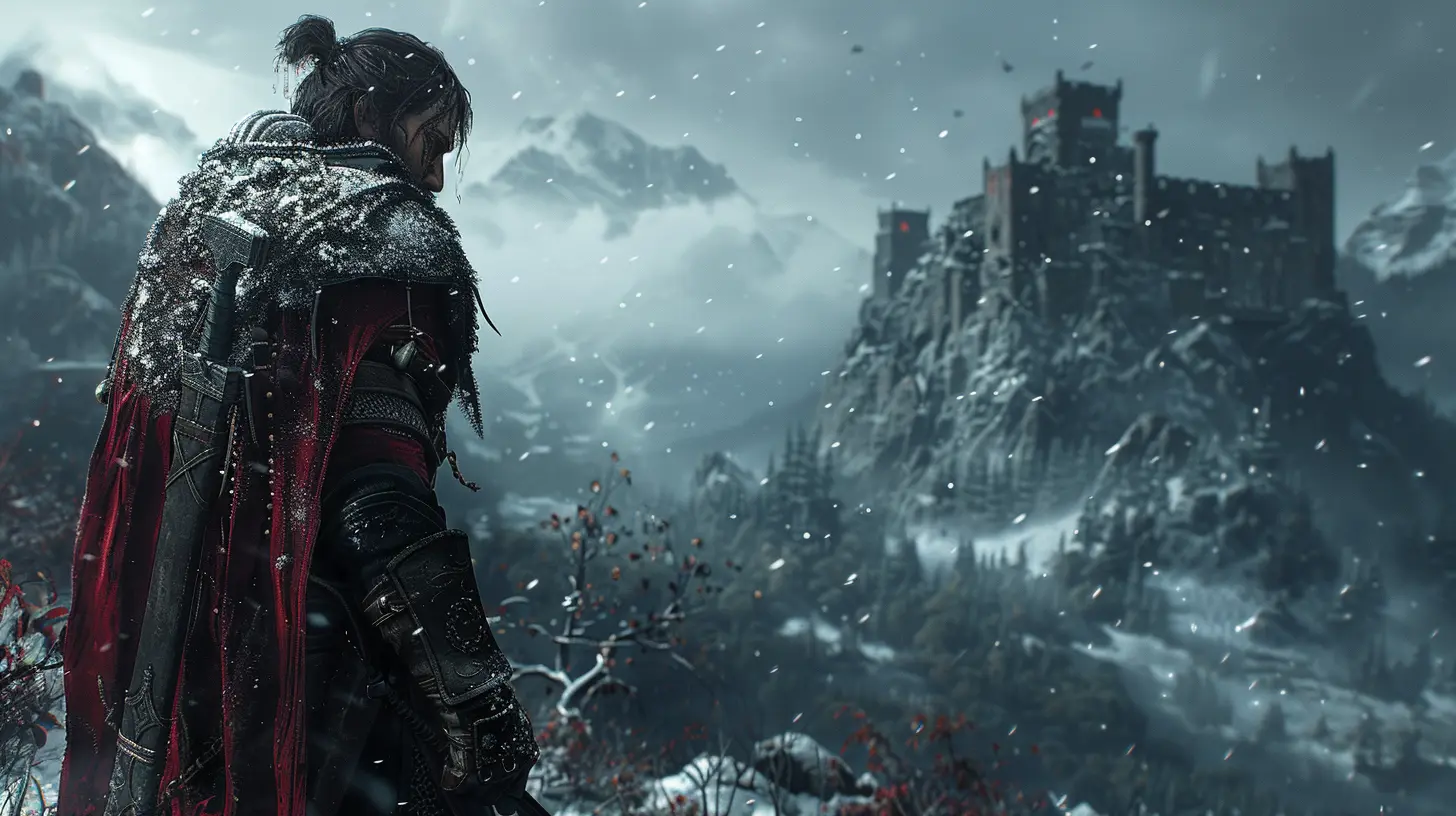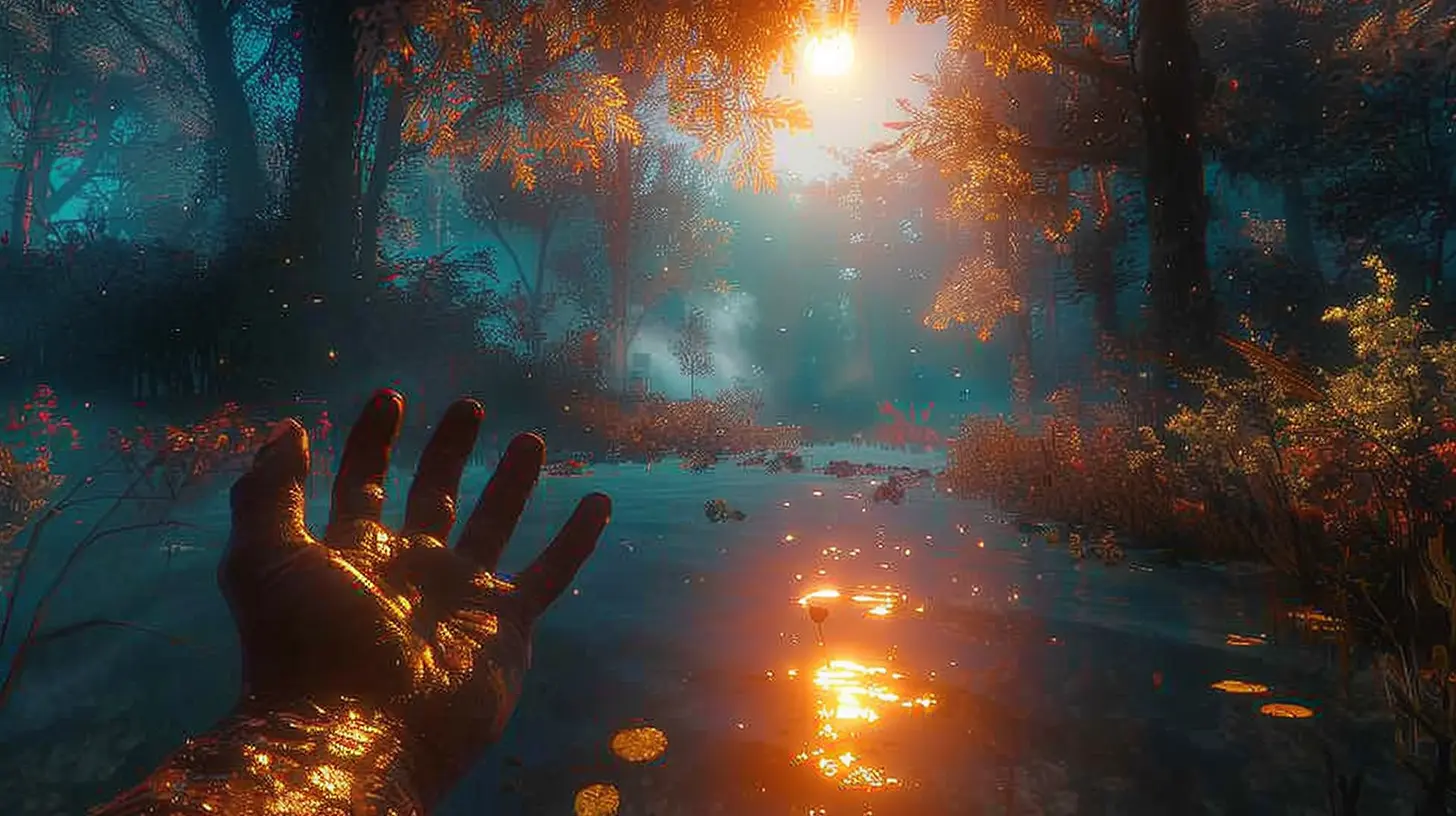The Impact of Voice Acting on Game Immersion
17 August 2025
Ever found yourself glued to your screen, totally lost in a game world, not because of the graphics... but because of the voices? That emotional punch in a character's monologue, the excitement in a soldier's shout, or even the quirky tone of a cartoon sidekick—all of it adds up. Voice acting is one of those behind-the-scenes elements that can be the secret sauce of an unforgettable gaming experience.
In this article, we’re diving deep into how voice acting affects game immersion. We're talking about why it matters, how it works, and how it can turn a good game into a great one. So grab your headset, and let’s get into it!
What Is Game Immersion, and Why Does It Matter?
Before we get into voice acting, let’s talk about immersion itself. Immersion is that magical moment when reality fades, and you feel like you're actually inside the game. You're not sitting on your couch with a controller—you’re in the battlefield, walking through ancient ruins, or navigating a spaceship.But how do games pull this off? Sure, high-res graphics help. Smooth gameplay is important too. But one tool that’s often underestimated is voice acting. It brings emotional depth, realism, and meaning to the virtual worlds we escape into.
Voice Acting: More Than Just Talk
At first glance, voice acting might seem like just another layer of audio. But it's way more than that. It’s the heartbeat of a story-driven game. Just like a great actor can bring a movie to life, skilled voice actors breathe soul into virtual characters.Think about it—have you ever played a game where the dialogue felt flat, robotic, or just off? It instantly breaks the illusion. On the flip side, ever heard a character scream in pain or crack a joke and felt it deep in your bones? That’s the power of good voice acting.
Evolution of Voice Acting in Gaming
Voice acting in games hasn’t always been where it is today. Remember those old-school games where characters spoke in beeps and boops? Yikes.The 90s brought us CD-ROMs and better storage, which opened the door for full voice tracks. Titles like Metal Gear Solid and Resident Evil started using real dialogue—and yeah, some of it was cheesy, but it was a game-changer.
Fast forward to today, and we’ve got performances that could rival Hollywood films. Games like The Last of Us, Red Dead Redemption 2, and God of War show just how far we've come. They're emotional rollercoasters, and voice acting is what drives their narrative engines.
How Voice Acting Enhances Game Immersion
1. Builds Emotional Connection
Ever cried over a character's death? Or felt joy at a happy reunion? That’s not just clever writing—it’s voice acting at work.When a character’s voice resonates with raw emotion, it pulls players in. Whether it’s sadness, rage, or laughter, hearing it spoken aloud makes it real. It's like watching a movie—you might read a sad book and feel a little blue, but when an actor shows you grief with their voice? Boom. You're there.
2. Deepens Storytelling
Voice acting adds another layer to storytelling. It's not just about what is said, but how it’s said. Tone, inflection, pauses—they all add flavor.Take The Witcher 3, for example. Geralt’s dry wit or Yennefer’s commanding tone help define who they are. Those voices tell us just as much as their dialogue does. Good voice work elevates even basic lines into memorable moments.
3. Breathes Life into the World
Imagine walking into a medieval village in a role-playing game and hearing the townsfolk chatting or a street vendor shouting about their goods.Even background characters add to immersion when they're voiced well. It gives the world texture and depth. Without it, you’re just walking through a silent, lifeless map.
4. Enhances Player Agency
In role-playing games where you can choose dialogue, voice acting makes the stakes feel higher.When your character speaks your chosen line with emotion, it doesn’t feel like just text on a screen. It feels like you made that call. And the reaction from the NPC? That’s when it hits you: your choices matter.
5. Makes Characters Memorable
Iconic characters? More often than not, they’re tied to iconic voices.Think of GLaDOS from Portal, Kratos from God of War, or Arthur Morgan from Red Dead Redemption 2. Their voices are etched into our memories. You might forget the gameplay mechanics, but that voice? That’s sticking around.
Real-Life Examples of Powerful Voice Acting
Let’s give credit where it’s due. Here are just a few games where voice acting seriously leveled up the experience:🎮 The Last of Us (Troy Baker & Ashley Johnson)
Their performances as Joel and Ellie weren't just good—they were emotionally gripping. Their chemistry, pain, and growth felt painfully real. You weren’t controlling characters; you were living their lives.🎮 God of War (Christopher Judge)
Kratos’ transformation from a rage-fueled god to a guarded father figure worked because you could hear the struggle in his voice. Judge’s deep, rumbling delivery brought gravity to every word.🎮 Mass Effect Series (Mark Meer & Jennifer Hale)
Playing as Commander Shepard wasn’t just about saving the galaxy. It was about being heard. Hale and Meer gave players two unique takes on the same role, both full of strength and conviction.The Role of Direction and Motion Capture
Great voice acting doesn’t happen in a vacuum. Voice directors help shape performances, guiding actors to deliver lines that match the emotion of the scene.And let’s not forget motion capture! In many modern games, actors record voice and movement together. This blend creates performances that are more authentic and human.
When you see a tear roll down a character’s cheek and hear their voice crack at the same moment—that's not coincidence. That’s performance capture magic.
Challenges in Video Game Voice Acting
Voice acting in games isn’t all glamor. It comes with its own set of hurdles:- Non-linear storytelling: Actors often record lines out of sequence. They have to keep emotional continuity without a clear timeline. Tough gig.
- Sheer volume: One game can have thousands of lines. Maintaining energy and consistency? That’s talent.
- Lack of context: Sometimes, actors record lines without knowing what scene they’re in. They have to trust the director—and their instincts.
Despite these challenges, talented voice actors rise to the occasion—and gamers reap the rewards.
Indie Games and Voice Acting
It’s not just AAA titles that benefit from good voice acting. Many indie games are stepping up their audio game too.Titles like Hades, Oxenfree, and Celeste use voice work (either fully voiced or partial) to connect players to characters in a personal way. It proves you don’t need a massive budget—just the right voice for the right moment.
The Future of Voice Acting in Gaming
Where do we go from here? With AI voice models becoming more advanced, some wonder if machines will replace human actors.Honestly? Probably not. AI can mimic tone, but it can’t capture feeling the way a person can. It can't improvise, can't react, and it sure can't cry like Ashley Johnson can.
What we might see are hybrid models—AI for filler lines, and humans for the heart of the story. Either way, voice acting isn’t going anywhere. It’s too essential to immersion.
Final Thoughts: Why Gamers Should Care
Voice acting might not be the flashiest feature to market a game, but it’s one of the most impactful. It’s the emotional glue holding characters and stories together. It makes us laugh, cry, scream, and think.So next time you're playing, take a moment. Really listen. That voice you're hearing? It’s not just sound—it’s soul.
all images in this post were generated using AI tools
Category:
Game Reviews ArchiveAuthor:

Madeleine McCaffrey
Discussion
rate this article
2 comments
Valentina Hensley
Voice acting elevates game immersion, breathing life into characters and narratives, making experiences unforgettable and deeply engaging for players.
November 29, 2025 at 6:11 PM
Aelith Vaughn
Fascinating take on voice acting's role in game immersion! It's intriguing how nuanced performances can elevate storytelling and our emotional connection to characters. Can’t wait to see future developments in this area!
August 17, 2025 at 3:01 AM

Madeleine McCaffrey
Thank you for your thoughtful comment! I completely agree—voice acting truly enhances storytelling and deepens our emotional ties to characters. Exciting times ahead for this field!


